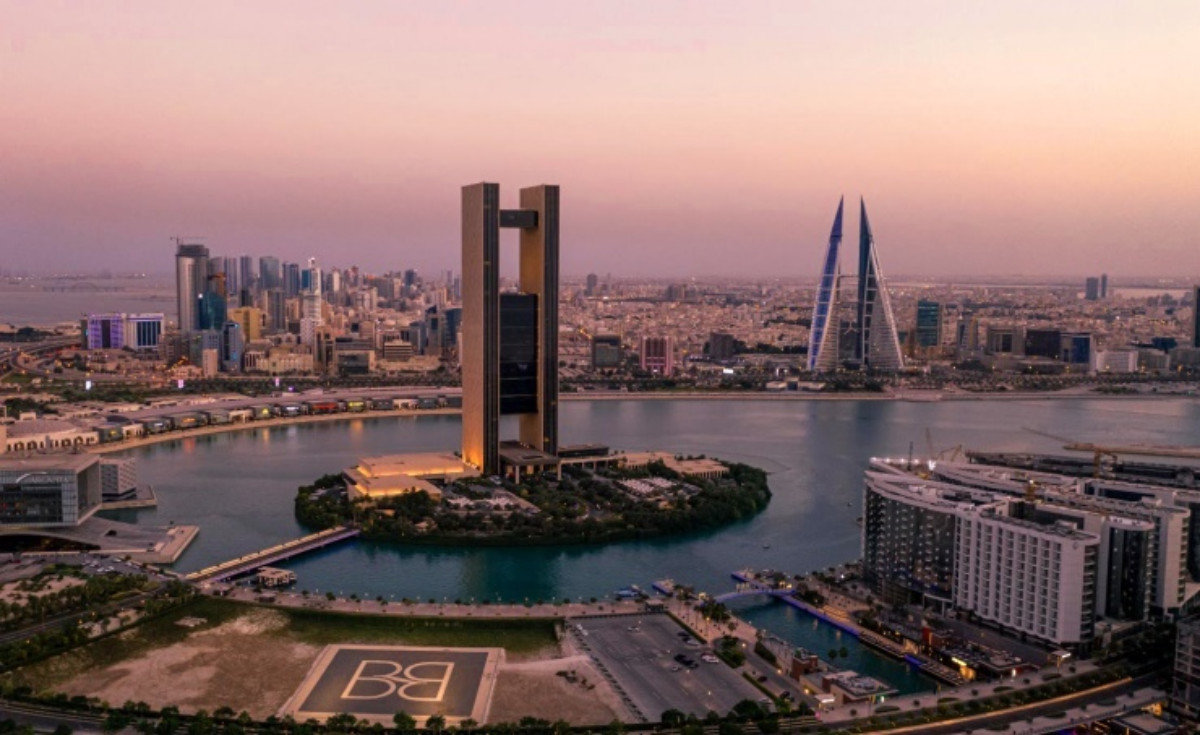Bahrain: Bahrain, a country covering 786.5 km² and a population of 1.5 million, has a reputation for being a thriving fintech hub. However, the Island Kingdom is setting itself apart to garner more and more attention as a business incubation hub.
Nabil Khoury, Managing Partner of Sovereign Bahrain, a sister company of PRO Partner Group, explained how Bahrain is an ideal location for business incubation, be it for individual entrepreneurs or established companies.
“Our 45-year-old organization Sovereign Group and PRO Partner Group has been in the region for the past 25 years and in Bahrain since 2011. The Kingdom has always welcomed 100 percent foreign ownership for onshore companies, which is 90 percent the case for Bahrain businesses, and it’s a zero-tax jurisdiction to this day. The setting up cost is around 10-15 percent of what you’re going to pay in other top GCC countries,” Khoury said.
The UAE has in place a 9 percent corporate tax and the Saudi corporate income tax rate is 20 percent of the net adjusted profits. Further, Zakat is charged on the company’s Zakat base at 2.5 percent. Zakat applies to companies that are resident in Saudi and other GCC nations.
Incubation in Bahrain is not exclusive to startups.
“Bahrain has what we call an external incubating service. Established companies looking to explore opportunities in the GCC in general, would need a subsidiary in the region. It’s easier for them to start here and establish a footprint given the many advantages compared with other GCC countries. As incubators, we let them focus on the business side while we take care of the admin and legal side of things,” Khoury explained.
Internal services apply to startups, which include individuals specialized in a certain field and who bring remarkable and marketable ideas, and need management and funding to set up a company in Bahrain.
Bahrain as an incubation hub
When it comes to location, Bahrain is linked to Saudi, the largest market in the region, via a causeway. A flight to Qatar from the island Kingdom takes less than 30 minutes and one to Dubai is only one hour away.
Bahrain also boasts very good logistics infrastructure including Salman Port and Khalifa Port.
“So, it’s very easy to import into Bahrain and then start distributing or selling products or services in Saudi, the biggest market in the region,” Khoury indicated.
According to Khoury, the number of incubators is around 25 in the entire country. However, 2022 statistics from Bahrain’s Ministry of Industry and Commerce showed thousands of new licenses were set up there.
“This means, Bahrain has a very encouraging business environment, one which needs incubators to make sure startups are doing a proper legal setup and suitable auditing, but also to assist clients with their marketing campaign, creating a budget, or doing product analysis, among others,” Khoury said.
Startup funding
In Bahrain, Tamkeen is a governmental fund looking after new startups when it comes to covering most of their operating and marketing expenses, as well as the cost of hiring new employees.
“The private sector is also very interested in funding new entrepreneurial projects. Some incubators can buy a license, set up that company, and begin inviting investors to fund new ideas by getting equity against their investments,” Khoury clarified.
According to the Oxford Business Group, funding for start-ups is available from several sources, including the Bahrain Economic Development Board EDB, Tamkeen’s new incubator launched in partnership with Riyadat Mall, Tenmou, a technology-focused angel investor, and 500 Global, a global VC firm with US$2.7 billion in AUMs.
“The Central Bank of Bahrain makes sure that equity transactions are not fraudulent and are properly transferred and that an escrow account has been opened appropriately,” Khoury assured.
Essentially, some incubators facilitate this funding process and work as intermediaries without actually investing directly in the startup. Sovereign Bahrain is one of those.
“This gives us a very credible position as an intermediary because there is no conflict of interest. We can easily deal with the banks or with the investor, connect people, and let people reach their goals without having any personal interest in that business or in that transaction,” Khoury said.
Khoury explained that Sovereign Bahrain’s income and profits come from consultancy services and fees charged to incorporate a structure, perform JVs, add directors, remove shareholders, and make sure that the company stays in good standing.
Equity in projects
Incubators in Bahrain work with startups’ business plans and budgets to estimate the funds needed to launch and sustain their businesses.
“Some incubators get into the business, buy equity, and ensure the idea is launched, structured, and developed over the long term. Return on equity allows incubators to recoup their initial capital. While 100 percent exit strategies are an option, many keep 5 or 10 percent for long-term equity return, when the venture shows future promise,” Khoury revealed.

Leveraging AI technology
Khoury underscores the importance of AI as a powerful research and analytical tool for businesses, done at much faster speeds than any human can, and as such will help startups minimize their risk of doing business.
“Investing in AI technology itself in Bahrain is not something startups or incubators are doing yet. Using it as an open source, yes. But we are very keen to keep explaining to start-ups what benefit they’re going to get from using AI,” Khoury indicated.
Bahrain’s human resources
Khoury said Bahrain is a country of highly educated people over many generations, and where a large number of schools and universities exist despite the small size of the Kingdom.
“During my trips to Saudi Arabia, Qatar, Kuwait, and the UAE, I met many Bahraini bankers. They are the main pillars behind the success of many GCC banks because, in the 1970s and 1980s, Bahrain became the offshore banking center in the whole Middle East,” Khoury said.
“I see huge potential in Bahrain’s human resources, and it’s a sector that the entire government is actually focusing on, to keep developing it and make real positive change in the future.”
Finally, education services, consultancy services, and fintech are the top three sectors talented entrepreneurs in Bahrain are engaging in. Bahrain FinTech Bay (BFB) spearheads the development of digital financial services, including cryptocurrency-based platforms.
It’s surprising that hospitality services in Bahrain, which generate a lot of income for the country because of its proximity to Saudi, are not top of mind for startups.
“Each day, thousands upon thousands of tourists come through the causeway to Bahrain. From an income point of view, hospitality is big, but from an incubation standpoint, education and consulting services, together with fintech are the top sectors for startups,” Khoury said.
As mentioned earlier, Bahrain is known as a financial hub, and as such financial services, and developing the infrastructure and technology behind them safely and transparently make the sector very appealing for entrepreneurs and investors alike.
“Today, in Bahrain, almost no one is using cash thanks to good financial infrastructure and technology services. The number of ATMs now stands at 30 percent of what it once was. Even with tips or gratuities, there’s a special application for them,” Khoury indicated.
ATMs have declined from 1000 units in 2018 down to around 300 units in 2022, according to the Central Bank of Bahrain.
Bahrain has a lot going for it when it comes to establishing and launching a business. With continued government support, startups will continue to thrive from funding and innovative business techniques that come from savvy incubators.

